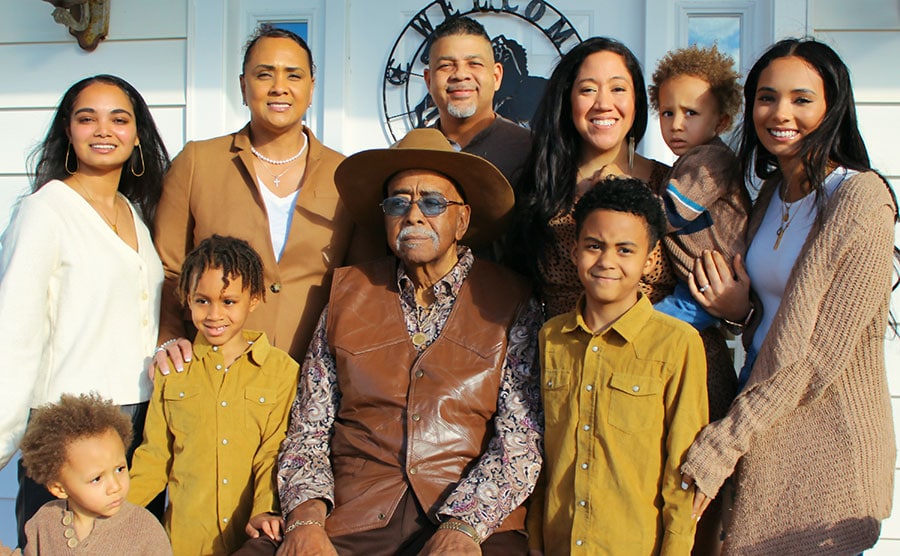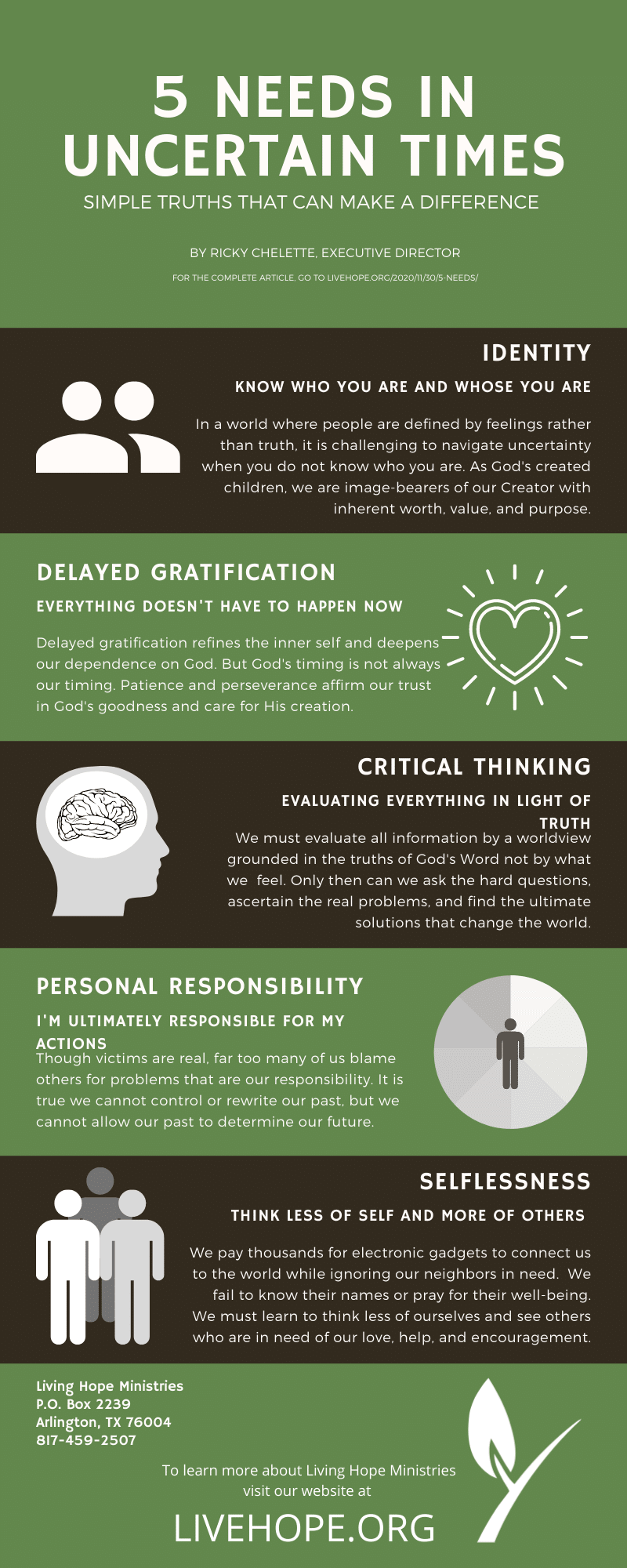by Ricky Chelette, Executive Director
5 minute read
Have you ever watched a new parent with his child? Have you seen the gleam in a mother’s eye when she coos with her baby or makes silly faces to elicit a response? In those moments of parent-child bonding, something very mystical is taking place. Moms and Dads seem to lose themselves in the reality of a newborn and utterly delight in their child.
It seems we humans are inclined towards delight, both in others and from others towards us. Something powerful happens in your soul and mind when someone sees you, appreciates you, and enjoys you thoroughly, solely for being you, without expectation or hope of reciprocity.
Jeffrey Olrick, Ph.D. and clinical psychologist, put it this way, “delight requires an attentiveness that affection does not. Delight communicates in subtle, crucial ways – I see you. And having seen you, I enjoy you. It is in this seeing and enjoying with unconditional love and acceptance that delight holds its unique power.”[1]
Dr. Olrick shares that studies have shown that when a person senses a feeling of delight, their brains release high levels of oxytocin, the neurochemical that causes us to feel deeply connected and bonded to another.[2]
So it is no wonder that we are mesmerized by experiencing delight. It is no surprise that our fantasies and even attractions may be towards those experiences, however brief those encounters may be. It is understandable then that those who have lacked being delighted in as children, youth, or young adults find themselves inextricably attracted to those who see them, experience them as they are, and delight in them.
In many ways, this experience of delight is part of what is so intoxicating about “falling in love.” Two individuals, completely consumed with the mere presence of the other, cherishing every moment, every word spoken, and every gesture made, lose themselves in the mere company of their beloved. It is also this feeling of delight that I believe, at least in part, sustains the marriage for decades. It is also one of the things most missed by the loss of a spouse. How blessed it is for a man or a woman to be deeply known, seen, and loved. How grievous the loss of one’s delight and the one delighted in.
The difficulty
But God did not leave the power of delight strictly in the hands of mortal and sinful humans. He knew Satan would distort even the best of His gifts and use them as thorns in the devil’s arsenal to destroy God’s creations.
Because all good gifts come from the Father (James 1:17), it should not surprise us that delight is not a human idea, but simply a reflection of a God-character we receive from our Father as image-bearers. 2 Samuel 22:20 and Psalm 18:20 both state that “he delights in me.” It is almost incomprehensible that the God of the universe would be so intimately cognizant of each of us that He would delight in us, but that is precisely what He does. We are not mere particles gathered haphazardly and assembled without intentionality. We are His beloved creation, so valuable to Him and His glory that He was willing to enter our world in the form of Jesus to redeem us back into His delight so that we might delight in Him. Though delight is indeed seen in and experienced through others in our lives, it is experienced most profoundly through our relationship with God. Ponder the mystery and majesty of God delighting in you. Contemplate the wonder of the One who knows everything there is to know about you, yet still longs to enjoy you, celebrate you for the you He has created you to be and delights in you. Sense the profound affirmation of God’s delight that empowers us with a deep sense of connection with our Creator and enables us, through His Spirit, to obey His commands. Soak it in. God delights in you!
But that is not the end of the story. God’s delight in us enables us to delight in Him just as His first loving us allows us to love Him. In Him, we find the way, the truth, and the life (John 14:6). In Him, we find our identity and our sense of being (Ephesians1:3-12). “In Him, we have been made complete” (Colossians 2:10). God’s delight empowers us for the mission and ministry He has prepared for us.
We see this beautifully displayed in the baptism of Jesus. Matthew 3:17 records, “this is my beloved Son, in whom I am well pleased.” The greek word eudokeo can also mean delight or takes delight. In other words, before Jesus began His earthly ministry, He received from His Father an explicit blessing and a sense of delight that empowered Him to face the difficulties He knew was ahead. Delight empowers and emboldens its recipient in a way that nothing else does. It proclaims in subtle and profound ways, that you are known, seen, loved, and cherished.
So many of the men and women I have journeyed with at Living Hope lack the experience of someone delighting in them. Their profound perception and feelings of “other-thanness” relegated them to efforts of self-affirmation and pain management. Instead of being delighted in, they often seek intense moments of connection through sexual encounters, addictions to pornography, or recreating their identities to be more desirable to those from who they most wanted to be seen, known, and loved. They long for the best friend, the attentive parent, the ever-supportive brother or sister, or the true comrade on the journey of life. In short, they long to be delighted in, seen, known, loved, and cherished.
The remedy
Though none of us can undo our past, we can forge a different path for our future. For whatever reason, we may not have received the delight we needed as a child. But God is able, whatever our age, to fill that need. Zephaniah 3:17 makes it clear,
“The Lord your God is with you,
he is mighty to save.
He will take great delight in you,
he will quiet you with his love,
he will rejoice over you with singing.”
If you are a parent or have significant input into children’s’ lives, you can delight in that child. Take time, especially one-on-one with a child, and delight in him for who he is and that he connected to you! Affirm in him the good gifts you see God has given him, the deep awareness he has for others’ feelings, or the tender ways he cares for others. Let him know you understand his heart, not just his deeds, and you are delighted in who God has created him to be.
And most importantly, embrace for yourself the truth that God delights in you and use that assurance to model for others the richness of that truth internalized. There is nothing as contagious as a person who knows the delight of the Lord. She is empowered for ministry and mission in a world desperately longing to be seen, heard, understood, and delighted in. “The possibility that God delights in you is potentially more radical and disruptive than the possibility that God loves you in a general sense.”[3] Experience the delight of the Lord in your life and invite others to experience His delight as well.
_____________________________
[1]Olrick, Amy Elizabeth, and Jeffrey Olrick, Ph.D. The 6 Needs of Every Child: Empowering Parents and Kids Through the Science of Connection, Zondervan Thrive, 2020, p. 62.
[2] Ibid, pg. 64.
[3] Ibid, pg. 65.












